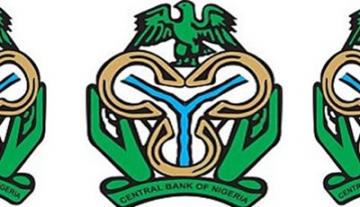Cash Withdrawal Limit Policy: Senators, Experts Knock CBN
Business News, Featured, Latest Headlines Thursday, December 8th, 2022
(AFRICAN EXAMINER) – Business, finance experts and other stakeholders were sharply divided on the implications and timing of the new cash withdrawal limits by the Central Bank of Nigeria (CBN).
They are concerned that the new policy might worsen the tight economic environment.
The Senate has scheduled a debate on the matter for next Tuesday.
Stakeholders are worried about the possibility of implementing hitch-free cash withdrawal limits in communities with blind spots or poor network connectivity.
The revised cash withdrawal limits, which take effect on January 9, 2023, also affect other payment channels, including Automated Teller Machines (ATM), Point of Sale (PoS) and cheque-based transactions.
Also, the maximum cash withdrawal through ATM is set at N100,000 per week, subject to a maximum of N20,000 cash withdrawal per day.
The maximum cash withdrawal through the PoS terminal shall be N20,000 per day; only denominations of N200 and below shall be loaded into the ATMs.
Deputy President, Lagos Chamber of Commerce & lndustry (LCCI), Gabriel ldahosa, said the cash withdrawal limit might be the next stage of the apex bank’s plan to steadily move the country to a cashless economy.
He said the CBN appeared to be taking the benefit of the change of the high denomination currency notes to speed up the cashless process.
He, however, expressed concerns that the policy may have negative consequences and lead to crises.
“It is likely to cause disruptions in the economy, especially in rural areas where bank branches are few and telecommunication networks are very weak.
“Small and medium enterprises (SMEs) that have small working capital tend to hold most of it in cash in order to keep their businesses running,” Idahosa said.
According to him, CBN may be forced to introduce special arrangements for rural areas and SMEs if the disruptions degenerate into crisis situations.
He said the apex bank must prepare for such possibilities, especially in hard-to-reach mountainous and riverine areas.
He noted that there might also be an unintended consequence of people in regular need of cash keeping much more cash than they normally do.
The Senate expressed reservations about the new policy and has scheduled Tuesday for a debate on the new cash withdrawal limits.
Senate President Ahmad Lawan believes the CBN should not approach the policy by jumping into it at once, saying many Nigerians would be affected.
He, however, noted the need to engage the CBN to get more details on the policy and thus directed the Senate Committee on Banking, Insurance and Other Financial Institutions to discuss the matter during the screening of the CBN deputy governors.
“This should be part of the major issues to be raised when they appear for screening. I want us to be properly informed and guided. Most of us, if not all of us, have not had an engagement with that institution.
“My personal opinion is, if we want to be a cashless society, we should take time to be a cashless society and not jump on it at once.
“Most Nigerians will be out of business. But we need to take the opportunity of the screening to be better informed on the policy,” Lawan said.
Senate Minority Leader Phillip Aduda called for caution on the cash withdrawal limit, saying the policy would affect the economy.
“Our commerce, I think, is not ready for this and our economy cannot take this shock. There is a need for us to speak about it because people are suffering and it is a very serious issue,” Aduda said.
Senator Gabriel Suswam urged the Senate to debate the policy immediately for the sake of Nigerians, who, he said, were extremely worried.
“My phone was inundated by calls from constituents, who are outside the formal sector. People are extremely worried. You should have allowed us to discuss this issue for the sake of Nigerians,” Suswam said, underlining the urgency of the situation.
Former Education Minister, Oby Ezekwesili, said the apex bank was punishing innocent Nigerians for the sins they never committed.
She described the policy as disastrous.
“What is with this constancy of disastrous Monetary Policies by the CBN? How did an institution that should model respect for economic evidence in policymaking become experts or agents of suffering in this country?
“You know that a policy entity has completely lost the plot when all sound evidence-based tools are abandoned in preference for policy guidelines with the high administrative cost of enforcement and a nightmare for innocent people.
“Punishing the innocent for the sins of the guilty?” Ezekwesili said.
Related Posts
Short URL: https://www.africanexaminer.com/?p=83663






















